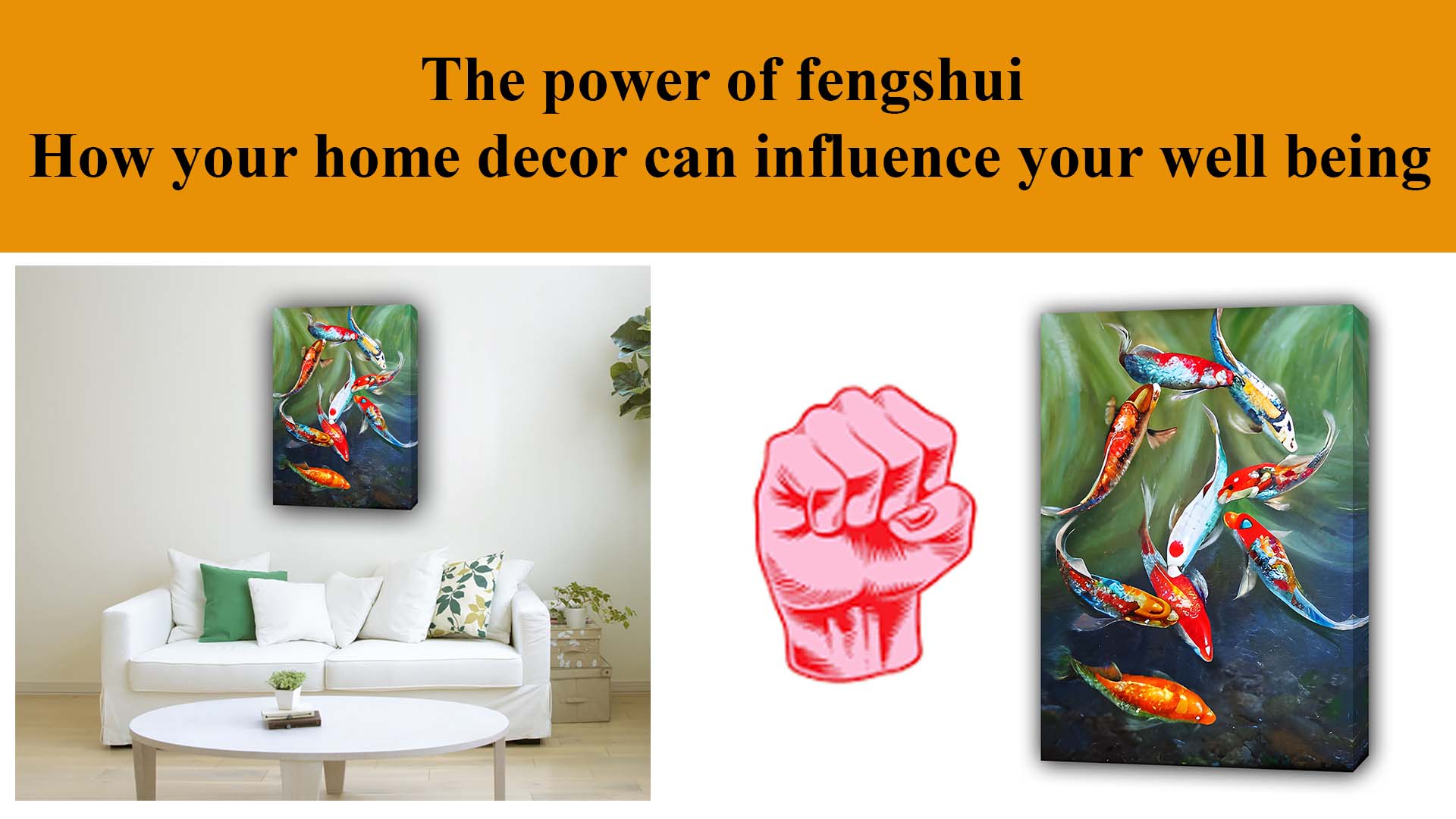
How Feng Shui Home Decor Influences Your Well-Being
Step into the world of Feng Shui, an ancient Chinese art of harmonizing the energies in our surroundings. Your home decor is more than just aesthetics; it's a powerful tool that can shape the energy flow within your living space, influencing your overall well-being. In this exploration, we delve into the ways Feng Shui home decor can positively impact your mental, emotional, and physical health.
1. The Power of Arrangement: Feng Shui emphasizes the arrangement of furniture and objects to facilitate the smooth flow of energy, or "Chi." A clutter-free and well-organized living space promotes a sense of calm and order, directly impacting your mental well-being. Ensure that pathways are clear, and furniture placement encourages a natural and unobstructed energy flow.
2. Color Psychology in Feng Shui: Colors play a vital role in Feng Shui, influencing the energy in different areas of your home. Warm tones like red and orange in the dining area stimulate appetite and conversation, while calming blues and greens in the bedroom promote relaxation. Understanding the energy each color brings allows you to create a balanced and harmonious atmosphere tailored to each room's purpose.
3. Integrating the Five Elements: Feng Shui associates five elements—wood, fire, earth, metal, and water—with specific qualities and energies. Incorporating these elements into your decor enhances balance. For example, wooden furniture introduces the wood element, symbolizing growth and vitality, while metal decor elements bring clarity and precision.
4. Nurturing Positive Chi with Plants: Plants are considered powerful conduits of positive energy in Feng Shui. They not only purify the air but also symbolize growth and vitality. Strategic placement of plants, such as the auspicious money plant or peace lily, can invite positive Chi, creating a refreshing and uplifting atmosphere.
5. Mindful Lighting Choices: Proper lighting is essential in Feng Shui to balance the Yin and Yang energies. Natural light is favored, but when artificial lighting is necessary, opt for fixtures that emit a warm and soothing glow. Soft lighting in the bedroom fosters relaxation, while well-lit workspaces promote focus and productivity.
6. Personalizing with Intention: Every decor choice in Feng Shui should be made with intention. Personalize your space with items that evoke positive memories or have sentimental value. Surrounding yourself with meaningful decor fosters a sense of connection and well-being.
Conclusion: In the art of Feng Shui, your home is a canvas where the energies of your surroundings can be intentionally shaped for your well-being. By aligning your decor choices with Feng Shui principles, you not only create a visually appealing home but also cultivate an environment that nurtures and supports your overall health and happiness. Harmonize your living space, and in turn, harmonize your life.
q&a:
Q1: How does the arrangement of furniture and objects in Feng Shui impact mental well-being?
A1: Feng Shui emphasizes the importance of a clutter-free and well-organized living space to facilitate the smooth flow of energy, known as "Chi." This arrangement promotes a sense of calm and order, directly influencing mental well-being by creating a harmonious and balanced environment.
Q2: How do colors, according to Feng Shui, influence the energy in different areas of the home?
A2: Colors play a vital role in Feng Shui, with each color associated with specific energies. For instance, warm tones like red and orange stimulate appetite and conversation in the dining area, while calming blues and greens in the bedroom promote relaxation. Understanding the energy each color brings allows for creating a balanced and harmonious atmosphere tailored to each room's purpose.
Q3: What role do the five elements (wood, fire, earth, metal, water) play in Feng Shui home decor?
A3: The five elements in Feng Shui are associated with specific qualities and energies. Integrating these elements into home decor enhances balance. For example, wooden furniture symbolizes growth and vitality, while metal decor elements bring clarity and precision. Balancing these elements contributes to a harmonious living space.
Q4: How do plants contribute to positive energy in Feng Shui?
A4: Plants are considered powerful conduits of positive energy in Feng Shui. They not only purify the air but also symbolize growth and vitality. Strategic placement of plants, such as the auspicious money plant or peace lily, can invite positive Chi, creating a refreshing and uplifting atmosphere in the home.
Q5: What is the significance of lighting choices in Feng Shui?
A5: Proper lighting is essential in Feng Shui to balance Yin and Yang energies. Natural light is favored, and when artificial lighting is necessary, fixtures emitting a warm and soothing glow are recommended. Thoughtful lighting choices, such as soft lighting in the bedroom for relaxation or well-lit workspaces for focus, contribute to the overall energy balance in the home.
Q6: How does personalizing the home with intention contribute to well-being in Feng Shui?
A6: Feng Shui encourages personalizing the living space with intention. Items that evoke positive memories or have sentimental value foster a sense of connection and well-being. By surrounding oneself with meaningful decor, individuals can create an environment that nurtures and supports their overall health and happiness.
Q7: How can one harmonize their life by aligning their decor choices with Feng Shui principles?
A7: Harmonizing life through Feng Shui involves intentional decor choices that align with the principles of energy flow, color associations, and elemental balance. By creating a visually appealing and balanced living environment, individuals can cultivate a space that positively influences their mental, emotional, and physical well-being.

Comments : (0)